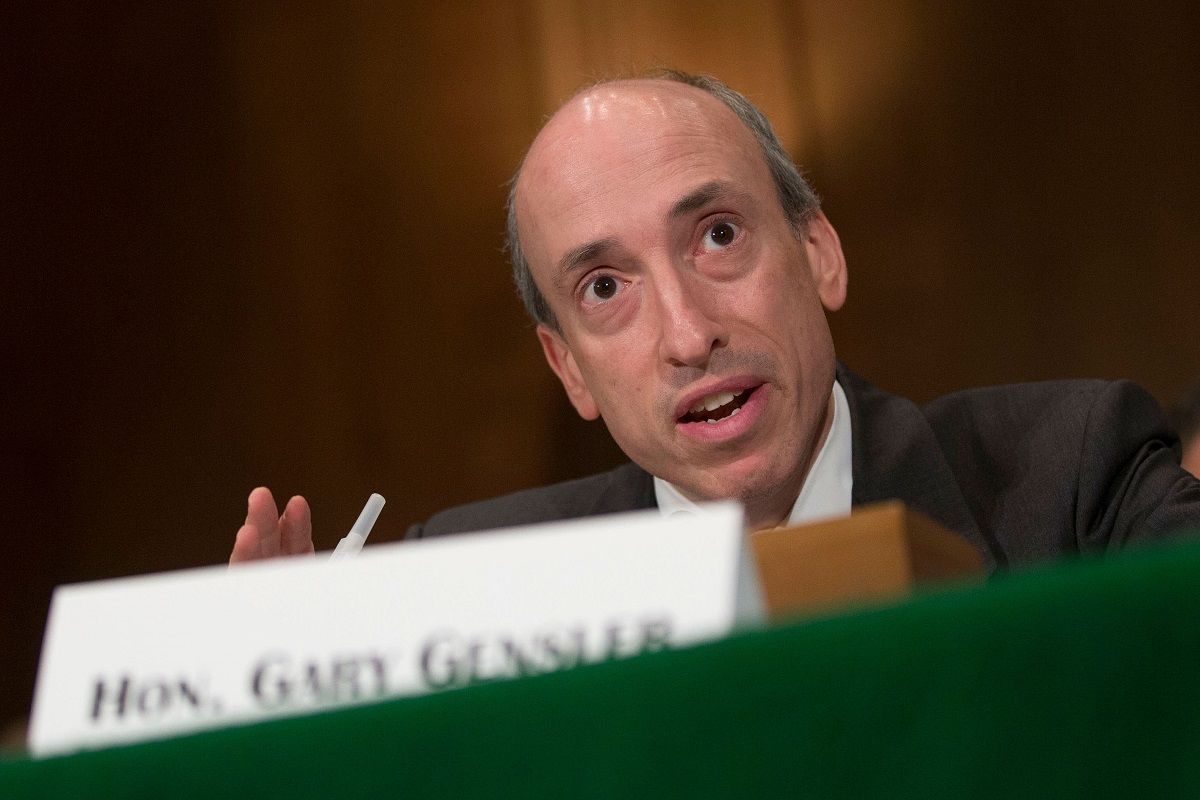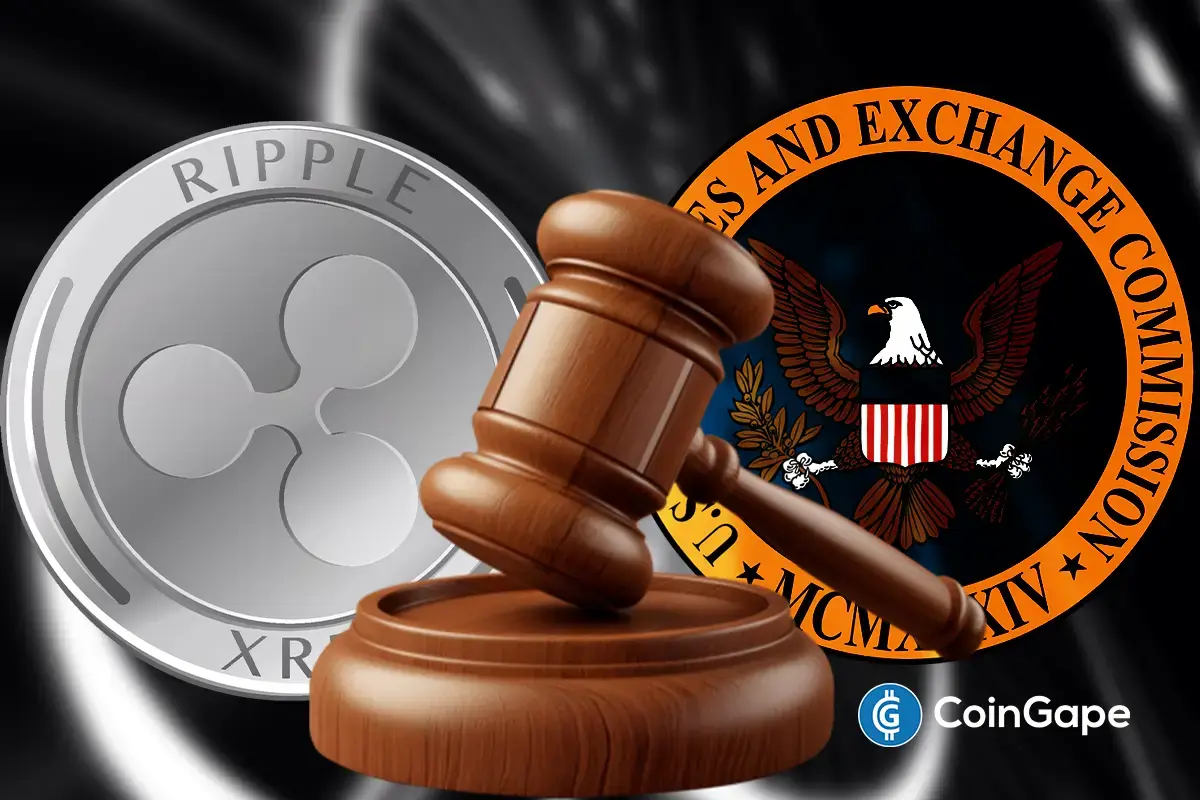Regulation
Congresswoman Introduces Bills to Reform SEC Rulemaking

Rep. Ann Wagner (R-MO), Chair of the Financial Services Subcommittee on Capital Markets, has introduced three bills that would reform the Securities and Exchange Commission’s (SEC) rulemaking process and increase the Commission’s accountability.
Wagner pointed out that these bills will deal with some of the long-term issues concerning the practices of the SEC, making the processes transparent and effective.
Addressing SEC Rulemaking and Accountability
Wagner proposed the SEC Regulatory Accountability Act (HR 8239) to ensure that the SEC duly assesses the effects of its rules. Thus, the bill mandates the SEC to carry out an in-depth analysis of issues before introducing new rules that consider their costs, benefits, and possible alternatives.
The SEC Transparency Act (HR 8241) requires the SEC Chairman to provide semi-annual testimony before the House Financial Services Committee and Senate Banking Committee, including at least once with the full Commission.
RELEASE: Wagner Introduces Legislation to Reform the SEC’s Rulemaking Process
Read more on the bill here ⬇️⬇️⬇️https://t.co/asrcYEjuQ3
— Ann Wagner (@RepAnnWagner) May 7, 2024
The third bill, HR 8240, the SEC Cybersecurity Act, requires the SEC to review its information technology infrastructure and data management processes in-depth and share its findings with Congress.
In declaring these reforms, Wagner slammed the current Biden administration regulatory approach of the SEC under the rule, calling it a “top-down, my way or the highway” approach that imposes a burden on retail investors. She is of the view that the new legislation will enhance the SEC’s accountability and efficiency in rulemaking.
Bipartisan Tensions Over DEBT Box Case
During a House Financial Services Subcommittee hearing on SEC enforcement, lawmakers were divided over the Commission’s handling of crypto startup DEBT Box. Wagner questioned the SEC’s behavior in the case, referring to the Utah judge’s criticism of the agency’s actions and its inappropriate filing of the lawsuit.
The judge had imposed sanctions upon the SEC for misleading statements and inappropriate conduct. The eventual result of the SEC’s actions was that the leading two attorneys stepped down. In this connection, Wagner criticized this “outrageous abuse of power” and highlighted the necessity of the agency’s enforcement proceedings being based on ethics.
Rep. Brad Sherman (D-CA) recognized the lawyers’ resignation as a requisite. He supported the SEC’s pursuit of allegations against DEBT Box, pointing to some bipartisan support for the organization’s attempt to combat crypto violations.
FDIC Investigation Sparks Calls for Resignation
In a separate development, House Financial Services Committee Chairman Patrick McHenry (R-NC) demanded the resignation of Federal Deposit Insurance Corporation (FDIC) Chair Martin Gruenberg after a report disclosed improprieties at the agency. McHenry characterized the report by Cleary Gottlieb as “damning,” revealing a toxic workplace culture under Gruenberg’s leadership.
The report summarized a large number of misconducts, inclusive of sexual harassment and discrimination, thus supporting the fact that the FDIC does not observe the standards that it sets for regulated entities.
🚨 BREAKING: Chairman @PatrickMcHenry calls on @FDICgov Chair Marty Gruenberg to resign following damning independent report released today by Cleary Gottlieb.
📖 Read more ⬇️https://t.co/MhZgXSEwAK pic.twitter.com/Tu7sFYgHBo
— Financial Services GOP (@FinancialCmte) May 7, 2024
McHenry suggested Gruenberg to leave to allow a” new set of eyes” in the agency while stating that the FDIC must ensure the stability of the financial institutions and providing a respectful workplace to its employees. The House Financial Services Committee and other regulators are still investigating these allegations and asking whistleblowers to come and tell their stories.
Balancing Enforcement and Due Process
With the SEC enforcement practices subject to a subcommittee hearing and Wagner as the chair, she advocated for a proper balance between deterring securities fraud and protecting due process rights. Wagner pointed out that although the enforcement division of the SEC is important for ensuring market integrity, the “regulation by enforcement” approach can lead to problems for market participants.
She warned that the public’s confidence in the SEC would be further undermined if staff members continued to abuse power or overstep their enforcement activities. Wagner reiterated that the purpose of reform is to protect due process rights, increase transparency, and rebuild trust in the SEC, ultimately allowing the market to function fairly for all participants.
Read Also: Cardano (ADA), Shiba Inu (SHIB), XRP Among Top Crypto Flashing Buy Signals
The presented content may include the personal opinion of the author and is subject to market condition. Do your market research before investing in cryptocurrencies. The author or the publication does not hold any responsibility for your personal financial loss.
Regulation
Japan Set To Classify Cryptocurrencies As Financial Products, Here’s All

Cryptocurrency investors in Japan are bracing for impact following a plan to reclassify digital assets as financial products. While the plan has elicited excitement from cryptocurrency enthusiasts in the Far East, the ambitious plan will have to scale several legislative hurdles.
Japan Targets Reclassification Of Cryptocurrencies As Financial Products
According to a report by Nikkei, Japan’s Financial Services Agency (FSA) is inching toward classifying cryptocurrencies as financial products. Per the report, the FSA intends to achieve the reclassification via an amendment to the Financial Instruments and Exchange Act.
Currently, digital assets in Japan are considered crypto assets conferred with property rights and seen as payment means. Under the FSA’s plans, cryptocurrencies in Japan will be treated as financial products in the same manner as traditional financial products.
The FSA says it will adopt a slow and steady approach toward the reclassification, carrying out “a private expert study group” to test the waters. If everything goes according to plan, the FSA will submit the amended bill to Parliament in early 2026.
The classification of cryptocurrencies as financial products will have far-reaching consequences for the local ecosystem. Experts say treating cryptocurrencies as financial products will bring Japan closer to a crypto ETF launch amid a changing regulatory landscape.
Furthermore, the move may lower current cryptocurrency taxation for local investors since existing capital market rules will apply to the asset class.
A Fresh Bill For Crypto Insider Trading Is Underway
Apart from the reclassification, the FSA disclosed plans for new legislation against insider trading. The move flows treating cryptocurrencies as financial products and will strengthen existing investor protection rules.
“It is a direction to establish a new insider trading regulation that prohibits trading based on unpublished internal information,” said the FSA. “We will develop laws to prevent unfair transactions.”
However, Japan’s cryptocurrency scene is heating up to a boil, driven by local and international players. Last week, stablecoin issuer Circle secured approval from the FSA for USDC with top exchanges set to list the stablecoin.
Japan’s Metaplanet has tapped Eric Trump to join its Strategic Board of Advisors as it continues to load up Bitcoin.
Disclaimer: The presented content may include the personal opinion of the author and is subject to market condition. Do your market research before investing in cryptocurrencies. The author or the publication does not hold any responsibility for your personal financial loss.
Regulation
Kentucky Governor Signs Off On ‘Bitcoin Rights’ Bill, Strengthening Crypto Protections


In what is being dubbed a major development in the crypto regulation space, the Governor of the US state of Kentucky, Andy Beshear, has signed the ‘Bitcoin Rights’ bill into law. The law promises to safeguard protections for Bitcoin (BTC) users.
Bitcoin Rights Bill Comes Into Effect
Crypto regulations continue to evolve under pro-crypto US President Donald Trump’s administration. In the latest development, Kentucky has become the newest state to enshrine protections for digital asset users.
In an X post published on March 24, crypto advocacy group Satoshi Action Fund announced that Governor Beshear had signed the much-anticipated Bitcoin Rights bill into law. The post stated:
The right to self-custody, run a node, and use of digital assets is now protected for millions of Americans without fear of discrimination.
The bill was first introduced to the Kentucky House by Rep. Adam Bowling on February 19. According to the bill’s description, it seeks to safeguard users’ rights to use digital assets and self-custody wallets. Additionally, it aims to prohibit local zoning changes that discriminate against crypto mining operations.
The legislation outlines guidelines for running a digital asset node and excludes digital asset mining from money transmitter license requirements. It also clarifies that crypto mining or staking is not considered an offer or sale of securities.
On February 28, the bill passed Kentucky’s House of Representatives with a unanimous vote of all 91 representatives in favor. It later passed the Kentucky Senate on March 13, receiving backing from all 37 senators.
Kentucky’s proactive stance toward cryptocurrencies isn’t new. Earlier this year, the state became the 16th US state to introduce legislation seeking to create a Bitcoin strategic reserve.
Meanwhile, neighboring state Arizona is also joining the crypto movement. A recent X post by Bitcoin Laws revealed that Arizona’s House Rules Committee has passed two Bitcoin reserve bills — SB1373 and SB1025. These bills will now head to a full floor vote.
Renewed Optimism Under Trump Administration
Following Trump’s victory in the November presidential election, cryptocurrency regulations in the US are evolving rapidly, with many states introducing legislation aimed at strengthening their digital asset ecosystems and attracting crypto businesses.
Positive changes in crypto regulations are encouraging industry businesses to expand. For instance, leading crypto trading platform Coinbase recently announced plans to hire 1,000 employees in the US.
The Trump administration has also witnessed several lawsuits being dropped against major crypto entities, including Kraken, Coinbase, Gemini, and others. At press time, Bitcoin trades at $87,399, down 0.2% in the past 24 hours.

Featured Image from Unsplash.com, chart from TradingView.com

Editorial Process for bitcoinist is centered on delivering thoroughly researched, accurate, and unbiased content. We uphold strict sourcing standards, and each page undergoes diligent review by our team of top technology experts and seasoned editors. This process ensures the integrity, relevance, and value of our content for our readers.
Regulation
US SEC Drops Charges Against Hawk Tuah Girl Hailey Welch

Hawk Tuah girl Hailey Welch, known for her association with the controversial $HAWK token, has been cleared of any wrongdoing after a lengthy investigation by the U.S. Securities and Exchange Commission (SEC). The SEC has decided not to press charges against Welch in connection with the rapid rise and subsequent collapse of the meme-based cryptocurrency.
US SEC Investigation Into Hawk Tuah Girl Concludes Without Charges
The SEC had launched an investigation into the $HAWK token after its dramatic price drop. The token, which was linked to Welch’s viral persona, initially saw a market cap surge to $490 million before crashing by over 90%. Investors who were impacted by the crash filed a lawsuit against those behind the project, alleging that the coin had been promoted and sold without proper registration.
Hawk Tuah girl Hailey Welch, who cooperated fully with the investigation, expressed relief after the SEC’s decision. “For the past few months, I’ve been cooperating with all the authorities and attorneys, and finally, that work is complete,” Welch told TMZ.
Her attorney, James Sallah, confirmed that the SEC had closed the case without any findings against her, adding that there would be no monetary sanctions or restrictions on Welch’s future involvement in cryptocurrency or securities.
This Is A Developing News, Please Check Back For More
Disclaimer: The presented content may include the personal opinion of the author and is subject to market condition. Do your market research before investing in cryptocurrencies. The author or the publication does not hold any responsibility for your personal financial loss.
-

 Regulation22 hours ago
Regulation22 hours agoJapan Set To Classify Cryptocurrencies As Financial Products, Here’s All
-

 Market22 hours ago
Market22 hours agoTop 3 Made in USA Coins to Watch This Week
-

 Market21 hours ago
Market21 hours agoSolana (SOL) Price Risks Dip Below $110 as Bears Gain Control
-

 Altcoin15 hours ago
Altcoin15 hours agoCardano Price Eyes Massive Pump In May Following Cyclical Patern From 2024
-

 Market11 hours ago
Market11 hours agoBitcoin Bears Tighten Grip—Where’s the Next Support?
-

 Market10 hours ago
Market10 hours agoEthereum Price Weakens—Can Bulls Prevent a Major Breakdown?




















✓ Share: